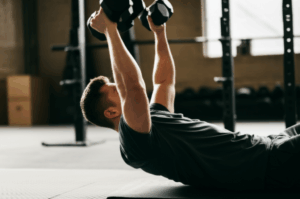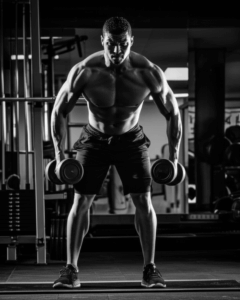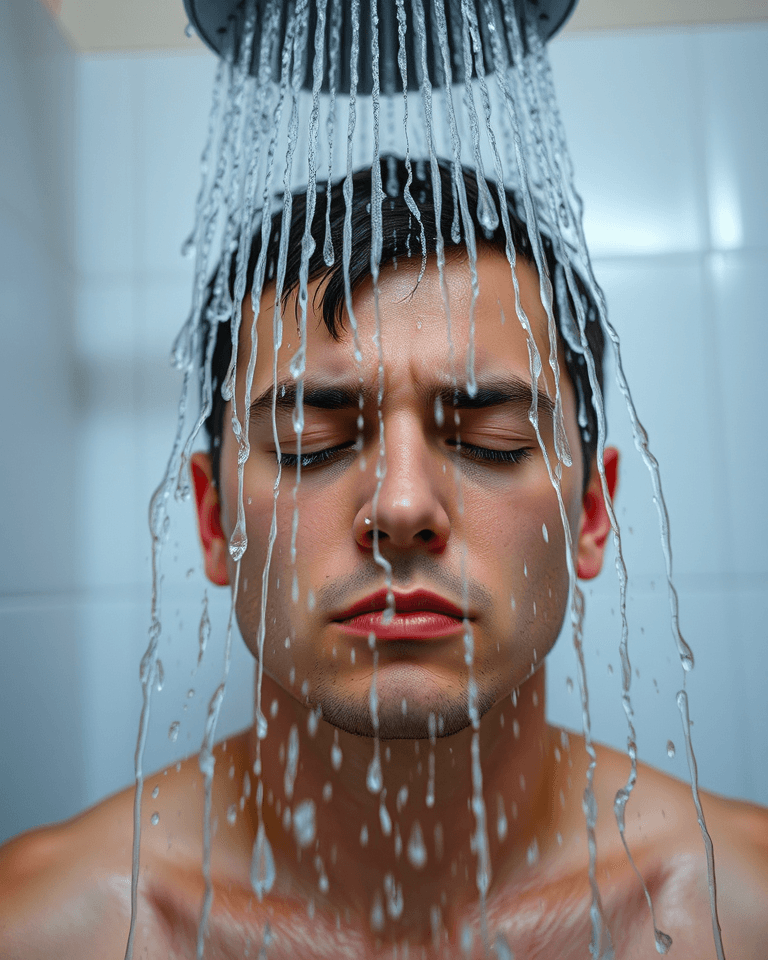The practice of taking cold showers has gained considerable traction, with proponents touting a wide range of potential benefits. From boosting immunity to enhancing mood and aiding muscle recovery, the claims are numerous and intriguing. But is there solid science backing these assertions, or is it just another wellness fad? This article dives into the world of cold showers, exploring their purported benefits, the scientific evidence, and the potential risks involved.
The Potential Perks of a Cold Shower
Many people are turning to cold showers, also known as cold water therapy or cryotherapy, for a variety of reasons. The practice involves exposing the body to cold temperatures, typically below 70°F (21°C), for a short period. Here are some of the most commonly cited benefits:
Enhanced Circulation
When cold water hits the body, it causes blood vessels on the surface to constrict, a process called vasoconstriction. This forces blood to circulate faster in deeper tissues to maintain core body temperature. Once you’re out of the cold water, your blood vessels dilate, improving overall circulation. This improved blood flow can contribute to better cardiovascular health.
Reduced Inflammation and Muscle Soreness
Cold water immersion is often used by athletes to reduce inflammation and muscle soreness after intense workouts. The cold temperature can help constrict blood vessels, reducing inflammation and pain. Studies have shown that cold water therapy can be as effective as active recovery in reducing muscle aches post-exercise.
Boosted Mood and Mental Alertness
A cold shower can be quite a shock to the system, triggering the release of hormones like norepinephrine and endorphins. These chemicals can act as natural pain relievers and mood enhancers, leading to feelings of well-being and increased alertness. Some research even suggests that cold water immersion may help alleviate symptoms of depression by sending electrical impulses to the brain, but it’s not a proven treatment for any mental health condition.
Improved Immune Function
Some studies suggest that cold showers may help boost the immune system. A study found that individuals who took cold showers were 29% less likely to call in sick for work or school. This could be due to an increase in white blood cells, which are crucial for fighting off infections. However, more research is needed to confirm these findings.
Increased Metabolism
The body expends energy to stay warm in cold environments. Cold exposure activates brown fat, a special tissue that burns calories to generate heat. This process can lead to an increase in metabolism and improved insulin sensitivity, potentially aiding in weight management.
Healthy Skin and Hair
While scientific research is limited, some people report that cold showers can improve the health and appearance of their skin and hair. Cold water can tighten and constrict blood flow, giving skin a healthier glow. Unlike hot water, it also doesn’t strip the sebum layer, the natural oil that protects skin and hair.
Potential Pain Relief
Cold showers can have a pain-reducing effect by stimulating cold receptors in the skin, which send electrical impulses to the brain that can decrease pain. Endorphins, which are natural pain relievers, are also released, further contributing to pain relief during and after the cold exposure.
How to Start Taking Cold Showers
If you’re intrigued by the potential benefits, it’s important to approach cold showers gradually and safely:
Start Slowly
Don’t jump straight into an icy blast. Begin by taking your usual warm shower and then gradually lower the temperature at the end for a brief period. Start with 30 seconds of cold water, then gradually increase the duration by 10-30 seconds each time you shower as you become more comfortable.
Aim for the Right Temperature
For cold therapy, the water should ideally be below 60°F (15°C). While this may feel very cold, it’s the temperature range that many studies use to achieve benefits. In a typical home shower, make the water as cold as it will go.
Find Your Duration
There’s no magic number, but many experts suggest 1-2 minutes daily as an optimal starting point. Some studies have shown benefits with as little as 30 seconds. Work your way up to a maximum of 5-10 minutes, based on your personal tolerance.
Practice Deep Breathing
The initial shock of cold water can be intense. Focus on taking slow, deep breaths to help calm your body and mind. This can also make it easier to endure the cold.
Consider Contrast Showers
Contrast showers, alternating between hot and cold water, can be a good way to ease into cold water therapy. Try a hot shower for 1-3 minutes, followed by 1 minute of cold water, repeating this cycle three times and always ending with cold.
Morning Showers
The best time to take a cold shower is often in the morning. The shock of the cold water can help kickstart your system and leave you feeling more alert and energized for the day ahead.
Consistency is Key
To experience the potential benefits of cold showers, consistency is important. Try incorporating them into your daily routine, even if it’s just for a short period.
Potential Risks and Precautions
While cold showers can offer many benefits, they aren’t suitable for everyone, and it’s essential to be aware of potential risks:
Cardiovascular Stress
Sudden exposure to cold water can cause a rapid increase in heart rate and blood pressure. This can be dangerous for individuals with pre-existing heart conditions. Those with heart conditions should consult their doctor before attempting cold water therapy, and may need to avoid it entirely. Prolonged cold water immersion has also been linked to heart muscle damage in some studies.
Respiratory Issues
The cold water can cause airways to tighten, making breathing difficult, particularly for individuals with asthma or other respiratory conditions. Always consult with your doctor before attempting cold water immersion if you have a respiratory problem.
Hypothermia
Prolonged exposure to cold water can lead to hypothermia, a dangerous condition where your body loses heat faster than it can produce it. Keep cold showers short to avoid this risk.
Cold Shock Response
The cold shock response can cause rapid breathing, disorientation, muscle cramps, and difficulty controlling movement. Start slowly and gradually adjust to the cold to avoid these issues.
Skin Conditions
Cold water can exacerbate skin conditions like dryness, eczema, and psoriasis. People with sensitive or dry skin should be cautious, especially during winter, as cold water can impair the skin’s ability to retain moisture.
Drowning Risk
Due to the disorientation and muscle issues that can be caused by sudden cold exposure, there is a risk of drowning, especially for unsupervised cold water plunges.
Not a Replacement for Medical Treatment
While some studies suggest potential benefits for mood and depression, cold showers should not be considered a replacement for professional medical treatment for mental health conditions or any other health issues.
Conclusion: Weighing the Plunge
Cold showers offer a range of potential benefits, from improved circulation and reduced inflammation to enhanced mood and potential immune system support. However, they’re not without risks. It’s crucial to start slowly, be mindful of your health conditions, and listen to your body. If you’re unsure whether cold showers are right for you, it’s always a good idea to consult with a healthcare professional. While more research is needed to fully understand the science behind cold water therapy, many people find the practice a worthwhile addition to their wellness routine.







